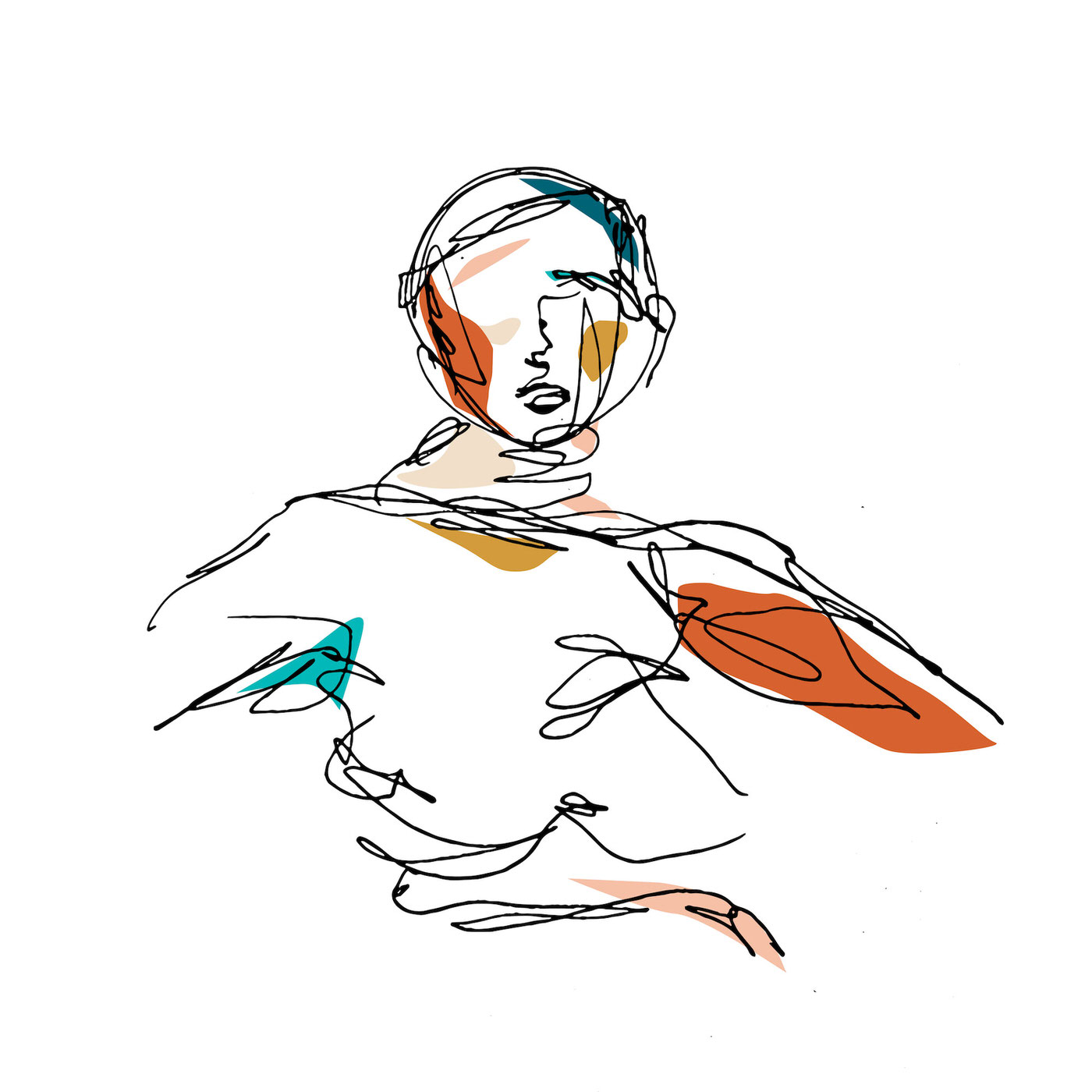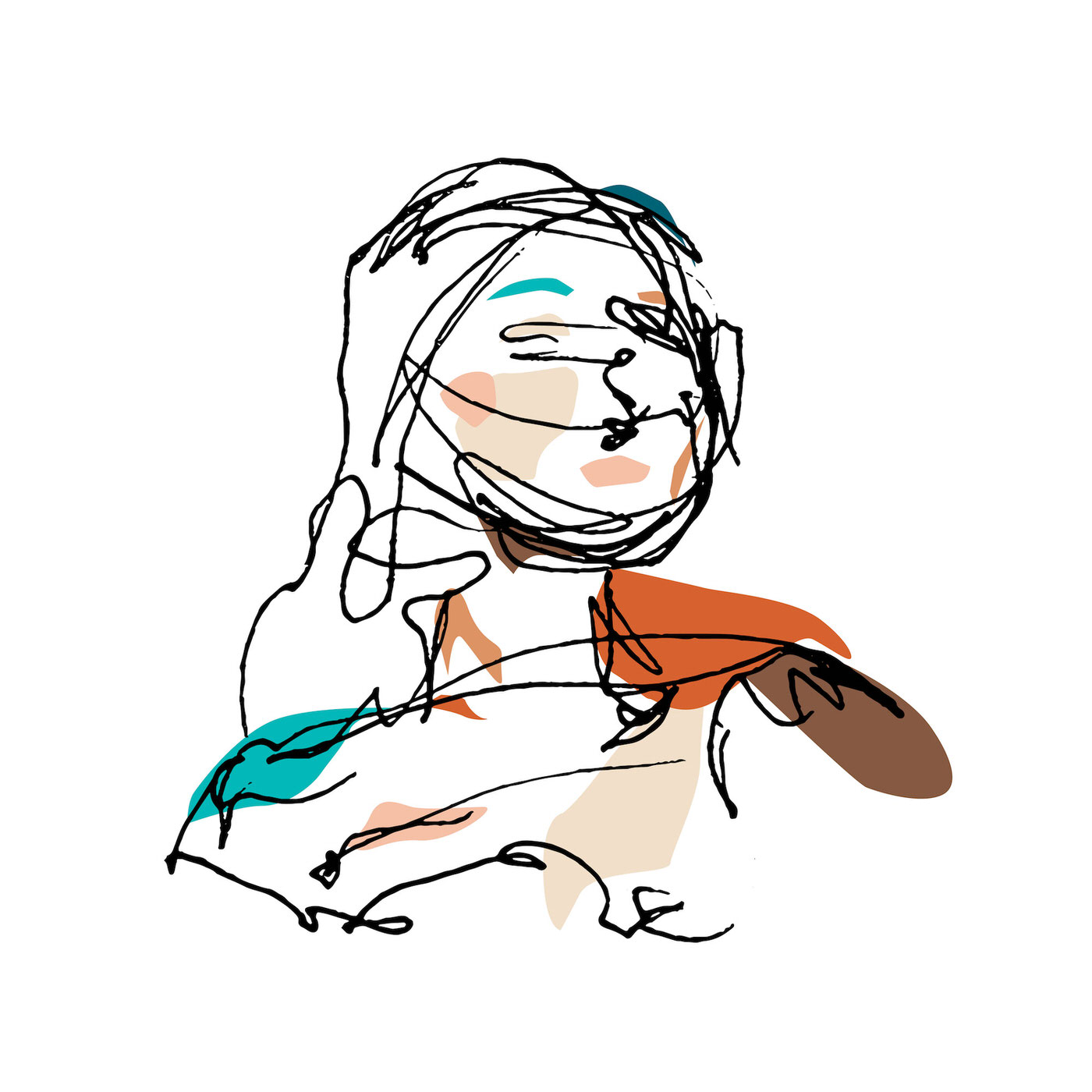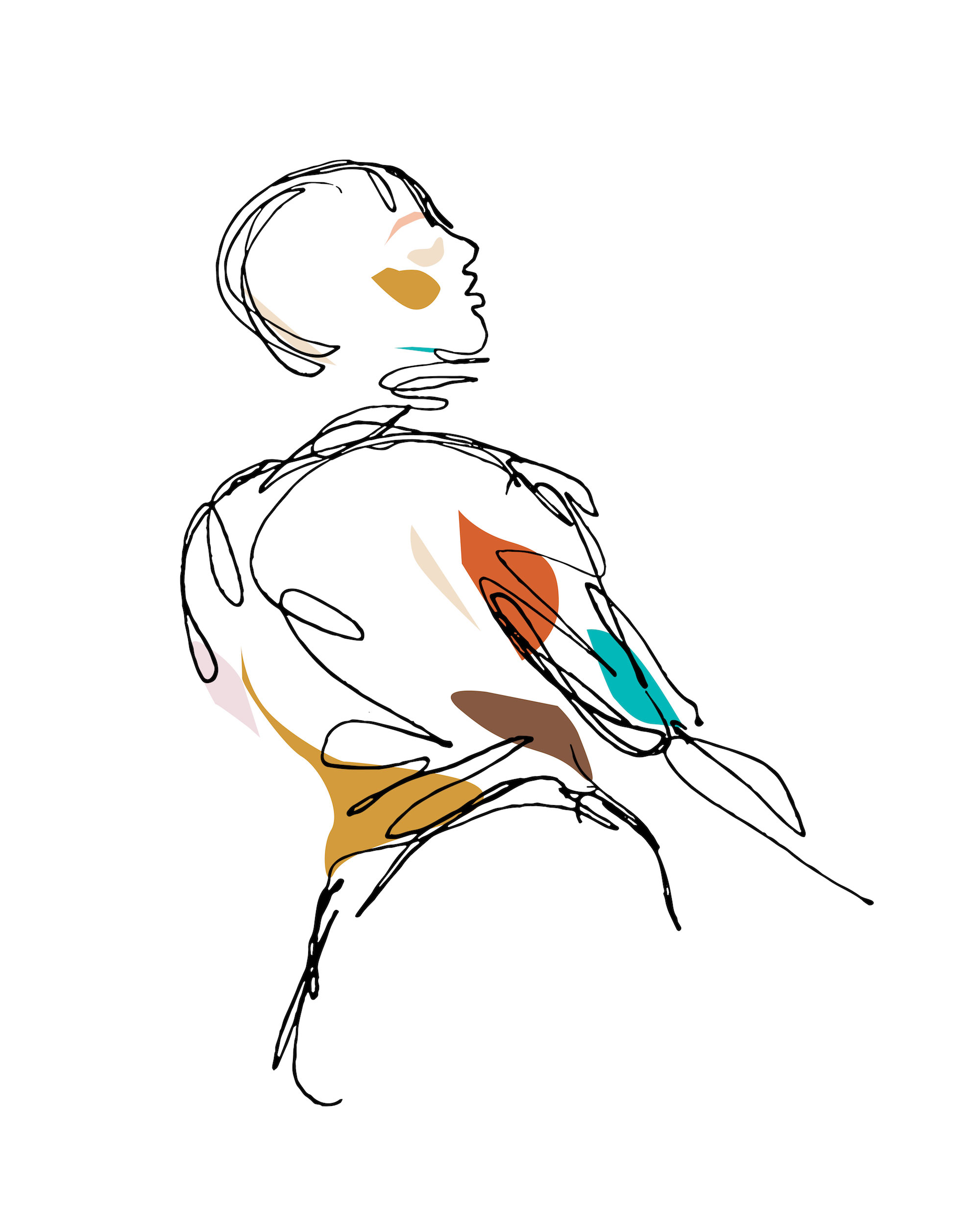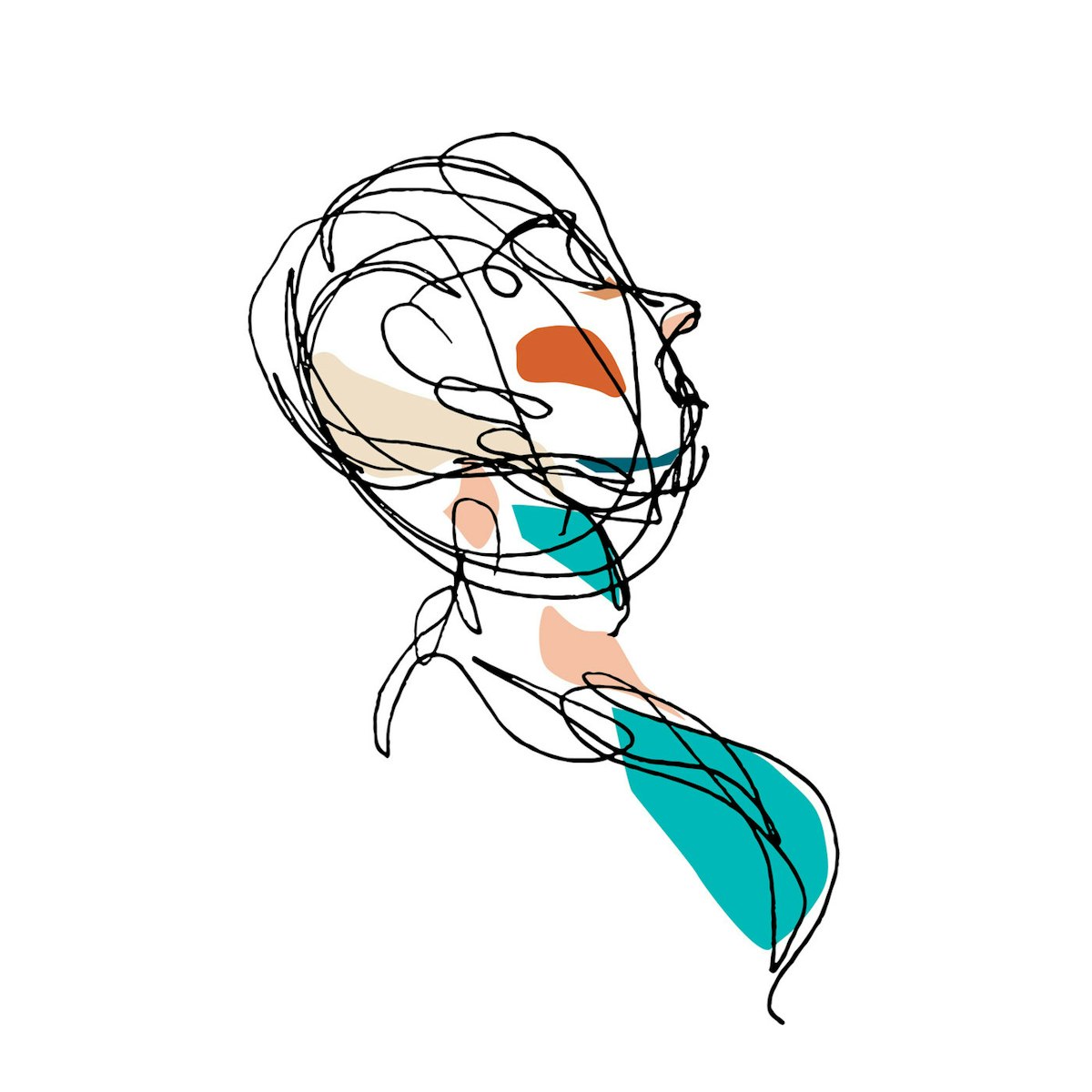One time, I tried to count how long in my short life I had spent feeling shame about my body.
The edges of the moments when shame came up were fuzzy - it was hard to tell where they ended and began. There were specific moments when it seems like thoughts and images and feelings about my dissatisfaction with myself raced to the front of my awareness - making it difficult to think about anything else. And then there was the rest of the time: the low level hum in the background reminding me constantly that I was this painful mix of too much (and I should be ashamed of that) and not enough (also, self, be ashamed of that). It made it difficult to count these hours of body shame because I realized there were few moments without them. I was struck in a new way that the story, like a thread, that wove through my life was this feeling like my body was unacceptable, unlovable, not what it should be. And in turn, it felt like those things were also true about me as a person.
While I was doing the math, some question became obvious: What did all the time spent in body shame take me away from? How did it keep my life small? And what would those hours, days, and years have been like if the thread that wove the story together was that my body is good, as is, and ultimately that I am good?
For so many of us as women this has been our story: preoccupation with our bodies in a way that leads us to smaller and more narrow forms of existence, constantly circled by the fear that if we take up space (physically, creatively, relationally, existentially), we will somehow have to confront that what we fear will be the certainty of our unlovable-ness. And yet, all that serves to do is keep our lives small.
In my academic research and clinical work as a therapist, I focus on women’s relationships with their bodies - what prevents these from being loving relationships, what that looks like across the lifespan and in certain areas of our lives, and how we can learn to heal. Some research I have found in my work has put words to things most of us feel: Most women (most reports hover around 80-85%) are chronically dissatisfied with their bodies. One of the problems that makes this number so high is that when we think about our bodies, we tend to focus on how we look. You might read that and think – what else is there to focus on? Hear me out.

In Western societies, a lot of our thinking has been influenced by Plato. Plato had some ideas about our how we relate to our bodies that still pervade in our common sociocultural discourse. He said that the soul, the self, the mind - these hard-to-pin-down central aspects to our personhood - are distinct from the body. This led and was related to thought about the body being bad, and the mind being pure. While most of us rarely contemplate philosophy from thousands of years ago, this line of thinking has become so fused into our culture that it even shapes the we way we talk. Think about how people say things like, “My body isn’t cooperating with me,” or “My body is letting me down.” But what if we are our bodies?
What if the mind is not separate from the body, and the self and the body are the same thing?
(The jury is still out on what the self even is, but think of it as who we think of ourselves to be; our personality, autobiography, and inner narrative of the world). This is a thought that existed long before the Western disembodied and colonizing philosophy took over. It is a thought that stayed present in some communities of women who payed attention to the cycles of their body and the earth, and how that is connected to life itself (sometimes those women were even called witches!). In a branch of psychology and phenomenology I am neck-deep in, we call this embodiment. Embodiment is the word we give to the felt sense of being in our bodies, not just evaluating them from the outside. As I mentioned above, most of us only think about the appearance of our bodies, unless of course we get sick or aging presents the realities of our finiteness.

Embodiment is like moving into a house you’ve only ever seen the outside of. And ladies, it is everything.
Embodiment, this shift to think of ourselves as our bodies (and good), has the potential to prevent body hatred and body shame, both heal and prevent eating disorders, while bringing us more fully into our creativity, intuition, sensuality, present awareness, and the sense of our power. Embodiment is connected to things like feeling our emotions, and finding ways to express them without shoving them down (which leads to improved mental health), intuitive eating, a more meaningful life, enjoying movement and play, and finding more pleasure in sex (because if we’re not just worried what our bodies look like if the lights are on, we are actually feeling the goodness of the pleasure). But, why would we want to spend time in a house that we have been told all our lives is bad? Maybe, just maybe, the story was bad, not the house. Just to make sure there is no confusion: our bodies have never been bad, no matter how they look. Maybe we all just got tricked into thinking so.
So, what would it look like if you stopped thinking as much about what your body looks like (to you, or others), and you thought more about feeling life from the inside out? To continue with the house metaphor, maybe it’s scary to think about moving in, so you start with just peeking through the front windows. Maybe what you find is that all of the wonderful, messy, painful, beautiful parts of life are waiting for you inside. When people start to become embodied, when they move into the house so to speak – sometimes things they may have tried to forget about can come up, like old wounds. They can be confronted with the reality that they don’t know how to be in their bodies, to feel feelings, to stay present with sensation, and to love the fullness that that brings. It can be complex. But, when you learn to stay in your body, and face the things that brings up, you get to experience all of the treasures that come with that. Like joy – that lives in the body. And orgasm - that is for sure in the body. And creativity - that is like turning up the music in the house until the walls are shaking with the beat. The spark of creative energy isn’t just an idea, it can also show up in the flesh. As you might have gathered, we shut off the complexity or the entirety of all of those wonderful things when we live a disembodied life focused just on playing the shame tape in our heads over and over again.

To end where we began – what would your life have been like if every moment you spent feeling shame about your body, you had been able to lovingly inhabit yourself – to be embodied? What would you have done differently? Would you have had those photos taken? Would you have put the bathing suit on because it felt good to be in the hot tub? Would you have said yes to that thing that normally feels scary? Would you have let that person put their arms around you?
What would you have let yourself create if the shame story inside, about the body (and also about all of you), was gone?
If it wasn’t so scary to risk, to be seen, to take up space? When you’re done reading this, think about what it means for you to move into the house, to be more in your body instead of just focused on the outside. This is an invitation to understand how all the shaming we have done has actually made our lives smaller, more fearful. It doesn’t have to be that way anymore. It never had to be that way, and perhaps these are the beginning moments of realizing that you are good, your body is good, and that that can be the thread that ties together your life together, not shame.
Illustrations by Melanie Loon
